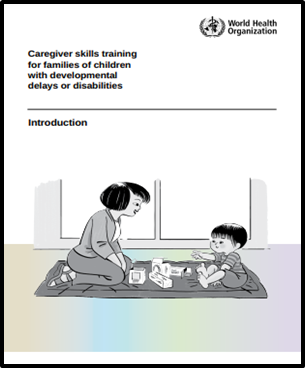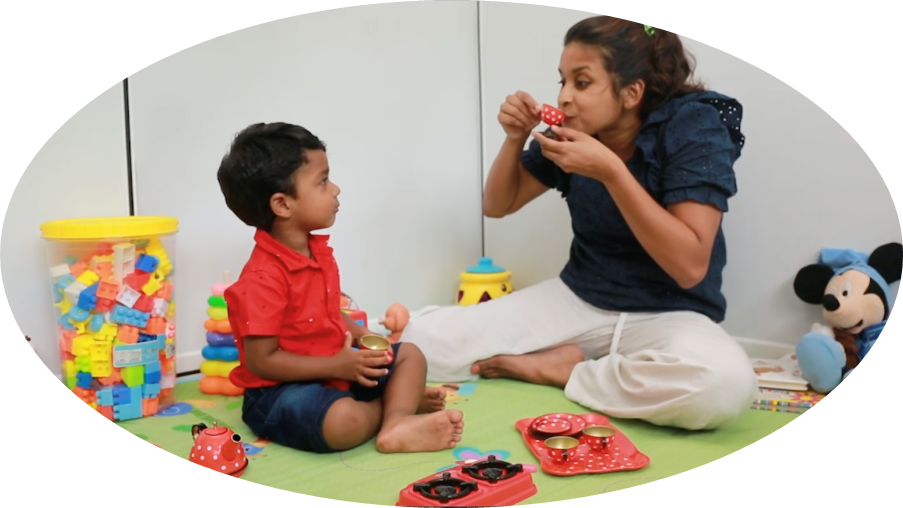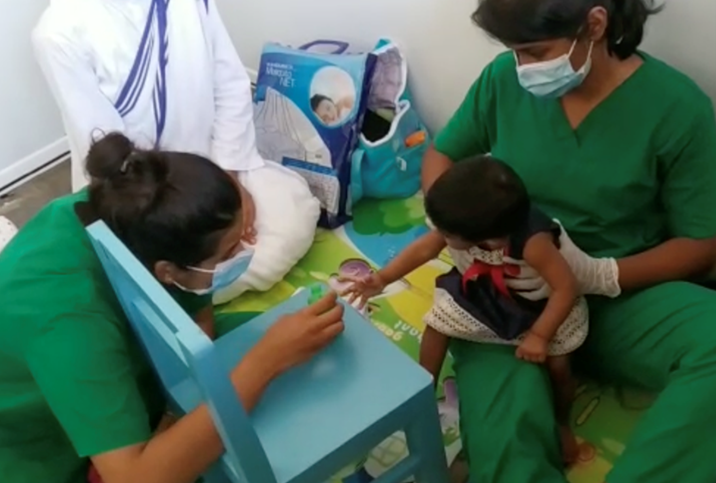Global estimates show that 52.9 million children under 5 years old have developmental disabilities and 95% of them live in low and middle-income countries[1]. Without appropriate support and a facilitative environment, these conditions often limit the ability of children with developmental delays to benefit from the opportunities provided. To worsen the situation, many children with developmental disabilities and their families have challenges in accessing support services.
The Nurturing Care Framework (NCF) for Early Childhood Development (ECD) launched by WHO, UNICEF and World Bank at the 71st session of the World Health Assembly in 2018 provides the background for early childhood interventions, laying the foundation for a child’s lifetime learning and engagement.Child health services in the public sector, had been focusing more on controlling communicable diseases and improving nutritional status in the past. New scientific evidence on the importance of early interventions with a high investment return coupled with the Sustainable Development Goal (SDG) 2030 agenda has triggered Sri Lanka to revamp child developmental services.
Inclusive Early Childhood Development
Ministry of Health (MOH), Sri Lanka, has taken leadership in introducing the Inclusive Early Childhood Development (IncluDe) campaign with stakeholders, including developmental partners and parent groups.
WHO has played a key role in designing care pathways in screening and managing children with developmental delays. Capacities of staff working in primary health care facilities, Neonatal Intensive Care Units (NICU), and Premature Baby Units were strengthened on early identification and early intervention for developmental delays in newborns and children under the age of 5 years. The training package focused on environmental enrichment, responsive parenting, early screening and early intervention, referral and follow-up. With the introduction of screening and early intervention programmes, parents were identified as an integral component of early intervention providers and their specific parental skills were also enhanced.
WHO Caregivers Skills Training (WHO-CST) which was released in 2022 was identified as an appropriate package to fulfil this role. WHO supported in training a pool of master trainers on the WHO-CST tools and supported its adaptations to the local context. At present the cultural adaptation process continues in native languages.

UNICEF is co-partnering on the initiative with the “Caring for the Caregiver” with the objective of building front-line workers’ skills in counseling to increase caregivers’ confidence and help them to develop self-care and improve their emotional well-being.

Parental training on early intervention. Photo credit: Child Developmental Unit, Family Health Bureau, Ministry of Health

Health Staff training on early identification & intervention for children with DD. Photo Credit: Child Developmental Unit, Family Health Bureau, Ministry of Health
[1] Global Research on Developmental Disabilities Collaborators. Developmental disabilities among children younger than 5 years in 195 countries and territories, 1990-2016: a systematic analysis for the Global Burden of Disease Study 2016. Lancet Glob Health. 2018 Oct;6(10):e1100-e1121. doi: 10.1016/S2214-109X(18)30309-7.
